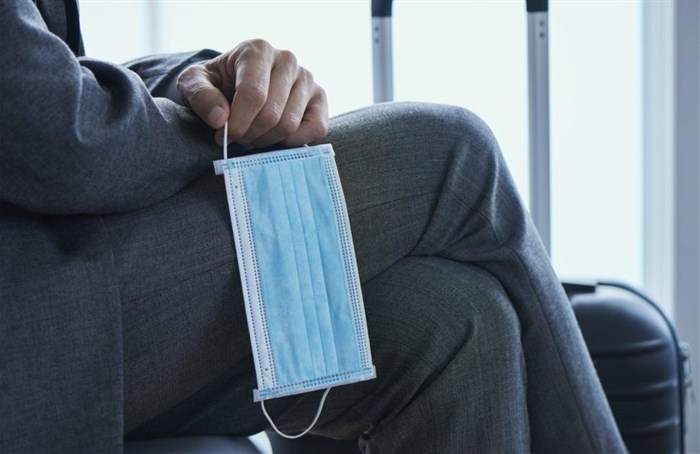
Forbes recently shared in an article that, "Boston Consulting Group’s latest report on consumer sentiment in travel and tourism concluded that 60% of U.S. consumers worry about being infected from flying. And 70% of respondents expect travel spending will not return to normal for more than a year. A survey conducted by Small Luxury Hotels of the World found that 29% of North American travellers are planning a trip before October and an additional 24% are looking at getting away in the fourth quarter."
Simply put, there are realities around the return to travel that we will need to attend to. And to approach the new normal, founder of Luxury Travel Editors, Dean McCoubreyo has proposed The new five Ps of travel marketing for premium brands.
Data consistently reveals the pressure that society is feeling right now and the consequent impact on our mental health. A vacation is known to benefit us and improve the way we return to our daily lives and work. Taking a break is a necessity, and we need to communicate and unpack the profound benefits. After all, that’s the business of luxury travel: the delivery of the experience, which provides rest and reset.
McCoubreyo explains: "The way in which we weave stories together across multiple platforms that include email, social media, digital advertising, public relations and video, will definitely move the needle in whether new or former guests will take the leap of faith to wind their way through airports, fly in planes, take a transfer, and then feel relaxed at a destination.
"Recalling memory and evoking emotion is powerful. Affluent travellers love the freedom and privilege of visiting new cultures and having new experiences. It’s something deeply ingrained in them, something which they normally do frequently, and something which they yearn for. It’s imperative that brands tap those emotions with sophisticated and poetic storytelling using text, photography, and video to take their audience beyond the edge of their uncertainty. “This must be carefully strategised and beautifully produced."
To know that brands have attended to the fundamentals of contactless check-in is important, and it appears many brands have attended to this – using QR codes or apps – while others have installed kitchens into rooms to allow for self-catering. So, has the entire guest journey been considered, from the sophistication, privacy and safety of the transfer, right through to the physical contact with items of luggage?
While contactless efficiency is somewhat expected in this environment, to really emphasise your support, you may need to offer assurance that the travel risk is worth it, simply by proving it. Emirates now includes free global cover for Covid-19 related costs from 23 July 2020 to 31 October 2020 and you will now receive a complimentary hygiene kit before departure, and have access to a video to get a closer look at the transformed Emirates journey, and information about the modifications you can expect during your upcoming experience.
If you are diagnosed with Covid-19 during your travels, while you are away from home, the policy covers medical expenses up to EUR 150,000 and quarantine costs up to EUR100 per day up to 14 days. There is no registration required, as any booking automatically covers the traveller under this policy. Virgin Atlantic has also introduced free Covid-19 insurance from Allianz Assistance for all passengers travelling up until March 31, 2021, and Saga’s optional included travel insurance for over 50’s is on all overseas holidays and includes up to £5m emergency medical and repatriation cover for coronavirus.
Do your guests know of these offers? In addition, customer testimonials that deliver the evidence of the safe and seamless experience should be amplified on review sites, on your site, and in the media. This will go some way to alleviate people’s concerns.
There are different categories of risk for different people. What are travellers willing to do, and where do they draw the line? Which countries will these clients come from? "Before we start telling our brand stories, we need to work who we are telling, and that requires a review of customer segmentation, at least for another 12 to 18 months. The old databases and rules don’t apply. Are we sending the same email to guests who cannot travel due to the limitations of the global red list?
"Are we communicating the same message to long-time customers that we send to relatively new or potential guests? The storytelling must strategically morph depending on the audience and where we are in the virus chronology, pre- and post-vaccine. This way we will have a realistic and agile way to pursue optimal luxury bookings, which assists the move from survival to stability. Ironically, a concise but sophisticated survey can provide clarity on where your clients are psychologically, with regard to travel," adds McCoubreyo.
"Some brands have not reviewed their social media strategy. Which regions are they targeting – are they the countries that can travel, and which hashtags are being followed? In all communications, are there interesting calls to action that make it easier for their customers to re-engage, to forward book, or to be tempted by a promotion?" Keeping track of the red list here is a good starting point to limit waste.
"The challenge with agencies is they are one step removed from the hardship of your industry. They don’t "live it" the way you are. The instruction to marketing, content and storytelling agencies is they need to think like hoteliers and travellers and work harder to review their messaging and sales strategies, continually. This isn’t business as usual, but there is business out there. Only the most agile will get the lion’s share of bookings. Agencies will need to analyse, monitor and adapt to stay on top of the competition," says McCoubrey.